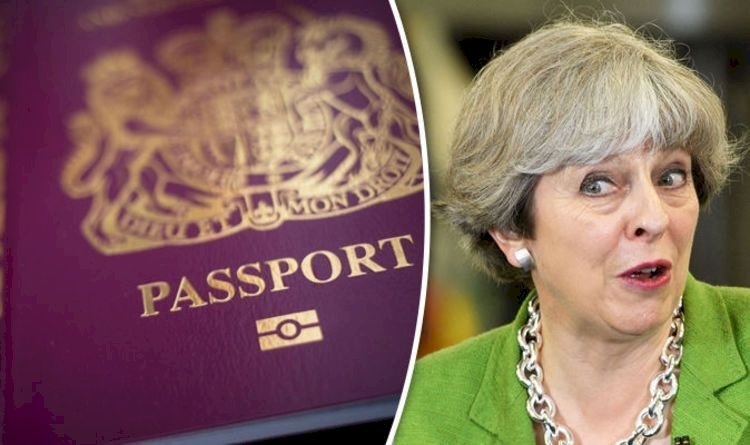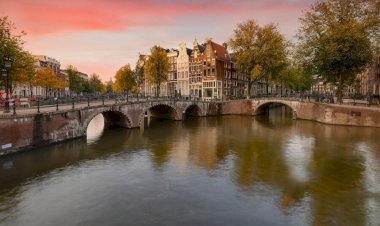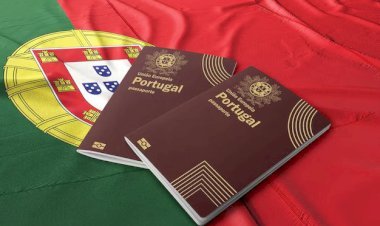UK Post-Brexit Citizenship Routes: Options for Britons
Explore UK post Brexit citizenship routes, from Irish ancestry and Portuguese residency to fast-track Caribbean investment programs.

Five years after Brexit's full implementation, a quiet migration wave continues as British citizens seek alternative passports to restore the EU access they once took for granted. While the headlines have moved on, the practical challenges of restricted travel, work limitations, and bureaucratic barriers persist for millions of Britons who built lives assuming perpetual European freedom.
Hard data on UK passport renewals doesn’t show a sharp post-2022 decline, but there is clear evidence that Britons are turning to EU routes. Ireland’s Foreign Births Register (citizenship by descent) recorded 23,456 UK-origin applications in 2024, up around 15% year-on-year. Researchers also estimate that over 90,000 Britons have acquired another EU citizenship since 2016 largely due to Brexit — a trend that shows no signs of slowing. For many, the decision comes down to finding the easiest paths to get another citizenship, whether through ancestry, marriage, or investment routes.
The New British Exodus: Numbers Tell the Story

Image source: pinterest .com
Immigration lawyers and official data highlight sustained, elevated demand from UK nationals in EU pathways. This isn’t limited to investors; families, retirees, and workers are all represented. The Irish ancestry route is the most popular, while Portugal, Spain, and Italy continue to draw residency applicants. Applications reflect practical motivations: young professionals seek EU mobility for careers, retirees for healthcare access, and business owners for smoother European commerce.
The patterns reveal strategic thinking rather than panic responses. Younger Britons prioritise EU citizenship for career mobility, while retirees focus on healthcare access and freedom of movement. Business owners seek jurisdictions that simplify European commerce, and families with children emphasise educational opportunities and long-term security.
Portugal remains one of the top destinations for Britons. The Portuguese migration agency AIMA reported that residence-permit applications tripled in 2024 compared with the year before, although it does not publish a clean breakdown by nationality. Reports suggest significant British participation, but readers should note that official nationality-specific figures are limited.
Ireland follows closely, with citizenship through ancestry claims reaching record highs among British applicants seeking the quickest route back to EU membership.
Investment Routes: The Fast Track Option

Image source: pinterest .com
Caribbean citizenship programs have emerged as unexpected solutions for time-sensitive situations. In July 2024, the five Caribbean countries offering citizenship by investment — Antigua & Barbuda, Dominica, Grenada, St Kitts & Nevis, and St Lucia — harmonised their rules, introducing a minimum US$200,000 contribution. Processing typically takes a few months, though timelines depend on due diligence checks. These programs grant full citizenship without residence requirements, but benefits such as visa-free travel vary and can change as countries update agreements.
James Harrison, a Manchester-based consultant, obtained Grenadian citizenship in 2023: “Brexit destroyed my European consulting business overnight. Grenada's passport gives me visa-free access to China, the EU, and 140+ countries. It bought me time to establish Portuguese residency for the long term.”
These programs require significant investment but deliver results quickly. For business owners facing immediate European access needs, the speed justifies the cost.
European Pathways: Ancestry and Marriage Routes

Image source: pinterest .com
Irish ancestry is the fastest EU route for eligible Britons: anyone with an Irish-born grandparent can register on the Foreign Births Register and then apply for an Irish passport. Applications from the UK reached record highs in 2024.
Italy (jure sanguinis) also offers citizenship by descent, but applicants face lengthy bureaucracy and processing times that vary widely by consulate or municipality.
Portugal allows spouses of Portuguese citizens to apply after three years of marriage or civil union, provided they show effective ties (often including basic language knowledge or longer marriage duration). Residence in Portugal is not always required, but documentation standards are strict.
Germany does not grant citizenship automatically through marriage. Under the June 2024 naturalisation law, well-integrated residents can apply after five years of residence (previously eight). Spouses of Germans still need residence, and marriage only shortens timelines when combined with integration requirements.
Spain requires ten years of residence for naturalisation, even if married to a Spanish citizen. Unlike Latin American or Ibero-American spouses, UK nationals receive no reduced timeline.
Professional and Skilled Migration

Image source: pinterest .com
Estonia’s Digital Nomad Visa allows Britons to live and work in Estonia for up to a year while visiting other Schengen states for short stays (90/180 days). It does not provide the right to live or work elsewhere in the EU.
The Netherlands’ Highly Skilled Migrant Scheme enables recognised employers to sponsor qualified workers. After five years of lawful residence, most can qualify for permanent residence or long-term EU status.
Germany’s healthcare sector welcomes UK professionals, but their qualifications are no longer automatically recognised. Applicants must go through third-country recognition procedures. Citizenship eligibility now generally arises after five years of residence, or sooner in exceptional integration cases.
Academic professionals also utilise university positions to establish residence. Lecturer and researcher roles often include sponsorship and clear pathways to permanent residence, particularly in countries like Denmark and Sweden that prioritise international talent retention.
The Generational Divide

Image source: pinterest .com
Brexit's impact varies dramatically by age group, creating different citizenship strategies across generations.
-
Young professionals prioritise EU access for career development, often willing to relocate permanently for better opportunities.
-
Middle-aged Britons focus on business continuity and family stability, maintaining UK residence while securing European citizenship as insurance.
-
Retirees emphasise healthcare access and cost of living optimisation. Spanish and Portuguese residency programs appeal to pensioners seeking European healthcare benefits alongside favourable tax treatment and climate advantages.
Hidden Costs and Unexpected Benefits

Image source: pinterest .com
Second citizenship involves ongoing obligations that many Britons underestimate. Tax reporting requirements, military service obligations, and residence maintenance can create complexity for dual citizens navigating multiple legal systems.
However, unexpected benefits often emerge. Enhanced passport strength provides visa-free access to countries that restrict British passport holders. Business opportunities multiply with European residency rights, and family members gain access to European educational systems at resident rates rather than international fees.
Estate planning benefits include EU inheritance law protections and simplified asset transfer across borders. For families with property or business interests in multiple countries, EU citizenship simplifies complex arrangements.
Applicants should also check dual-citizenship rules, tax reporting obligations, possible military service, and inheritance laws in each jurisdiction before applying, as these vary by country and can affect long-term planning.
The Political Dimension

Image source: pinterest .com
Researchers estimate that 90,000+ Britons have acquired another EU citizenship since 2016 largely because of Brexit — a phenomenon known as the “Brexit naturalisation effect.” While the exact numbers remain incomplete, the trend is steady and shows no sign of reversing.
This represents a brain drain with long-term implications for UK competitiveness. Young professionals establishing European careers, experienced business owners relocating operations, and skilled workers seeking better opportunities create cumulative economic impacts that compound over time.
The phenomenon reveals Brexit's personal cost for millions who supported European integration or simply assumed continued European access. For these Britons, alternative citizenship represents pragmatic adaptation to a political choice they couldn’t influence but must navigate.
Looking Forward: Strategic Citizenship Planning

Image source: pinterest .com
Legal experts recommend systematic approaches to citizenship planning rather than reactive decision-making. Understanding eligibility requirements, investment levels, and timeline expectations enables informed choices that align with personal circumstances and long-term goals.
Family considerations matter significantly. Citizenship routes that include spouse and dependent children provide comprehensive solutions, while individual applications may leave family members in precarious positions during transition periods.
Professional advice becomes essential for complex situations involving multiple eligibility routes, significant assets, or time-sensitive business requirements. The regulatory landscape changes frequently, and professional guidance helps applicants navigate evolving requirements while avoiding costly mistakes.
For Britons seeking to recover European access or enhance global mobility, citizenship planning represents one of the most consequential personal decisions of the post-Brexit era. While the process requires investment of time, money, and energy, the alternative — accepting permanent restriction to a single passport’s limitations — often proves unacceptable for those who experienced true European freedom.
The quiet migration continues, driven not by ideology but by necessity. For hundreds of thousands of Britons, alternative citizenship isn’t about rejecting British identity — it’s about reclaiming the global opportunities that Brexit inadvertently surrendered.
Conclusion
Brexit has reshaped the citizenship landscape for Britons, turning what was once automatic EU access into a complex journey of ancestry claims, residency permits, and investment routes. While some choose fast-track Caribbean programs, most rely on European pathways such as Irish ancestry, Portuguese marriage laws, or skilled migration schemes. The decision is rarely ideological—it’s practical, driven by work, family, healthcare, and long-term stability. For many, securing an alternative passport isn’t about rejecting British identity but about restoring the freedoms they once had within Europe.
FAQs
1. What’s the easiest country for Britons to get citizenship after Brexit?
Ireland — if you have an Irish-born grandparent, you can apply for Irish citizenship and get full EU rights.
2. Can Britons get EU citizenship through marriage?
Yes, but rules vary. Portugal allows it after 3 years of marriage, while Spain requires 10 years of residence.
3. How long does Portuguese citizenship take?
Usually 5 years of residence. For spouses of Portuguese citizens, it can be 3 years with proof of ties.
4. Are Caribbean citizenship programs common for Britons?
Some use them for quick access. Minimum investment is around US$200,000, with approval in a few months.
5. Do Britons lose UK citizenship if they get another passport?
No. The UK allows dual citizenship, but you should check the rules of the second country.
Disclaimer: This article is for informational purposes only and does not constitute legal, financial, or immigration advice. Laws and requirements change frequently. Readers should consult official government sources or a qualified professional before making decisions regarding citizenship or residency.




























